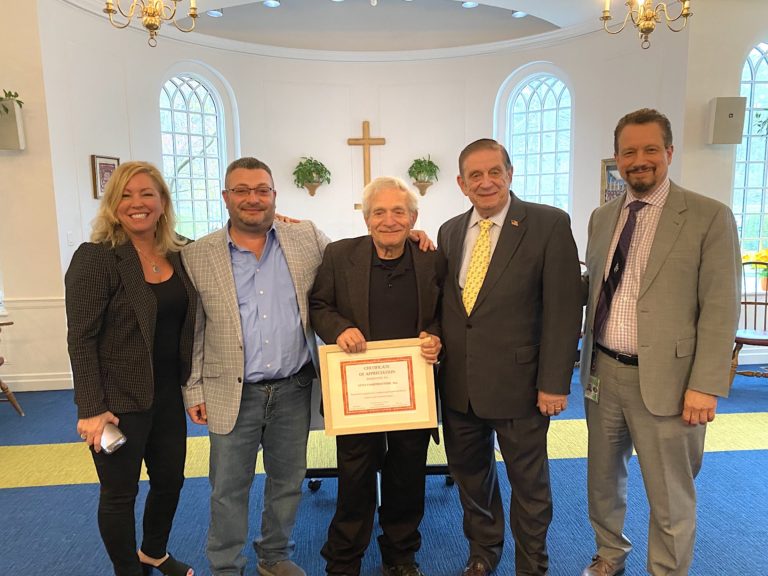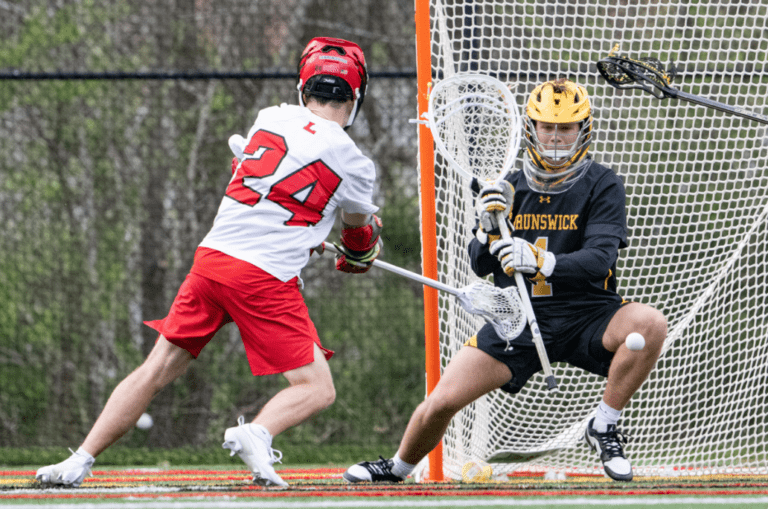The War that Made the Roman Empire: Antony, Cleopatra, and Octavian, at Actium
By Tim Brooks
At the Retired Men’s Association (RMA) of Greenwich’s meeting on Wednesday, July 27, meeting, Dr. George Ubogy of the RMA introduced the speaker, historian Barry Strauss, a Professor of History and Classics, with a particular interest in military history, at Cornell University. Professor Strauss’ presentation focused on a major battle between two well-known, historical leaders from the Roman Empire: Mark Antony and Octavian
After the assassination of Julius Caesar in 44 B.C., the fate of the Roman Empire seemed to hang in the balance between two men. On one side was the battle-proven Mark Antony—Julius Caesar’s former lieutenant and the presumed next leader of the Empire—working together with Cleopatra, the Queen of Egypt, his romantic partner, and the richest and most powerful woman in the world. On the other side was Octavian—Caesar’s adopted son and chosen heir, a young and inexperienced military and political player. Both men claimed leadership of the Empire and made the case that they knew the true way forward for Rome to maintain its glory.
Dr. Strauss discussed this epic struggle for power which led to one of the greatest naval battles in the ancient world, in 31 B.C., as recounted in his new book, The War That Made the Roman Empire: Antony, Cleopatra, and Octavian at Actium. It has been called “a hinge upon which history turned,” and cemented western-facing Rome rather than eastern-facing Greece and Egypt as the nexus of Western civilization for centuries to come.
Barry Strauss is a former chairman of the Cornell history department and a past director of Cornell’s Institute for Peace and Conflict Studies, where he studied modern engagements from Bosnia to Iraq and from Afghanistan to Europe. He is currently director as well as a founder of Cornell’s Program on Freedom and Free Societies, which investigates challenges to constitutional liberty at home and abroad.
Professor Strauss is a frequent participant in educational TV series on ancient Greece and the Roman Empire, and is the author or co-author of a dozen books, including The Battle of Salamis, The Trojan War, The Spartacus War, The Death of Caesar, The Storm Before the Storm: The Beginning of the End of the Roman Republic, and Ten Caesars: Roman Emperors from Augustus to Constantine. For those interested in viewing the full presentation, go to the RMA website and click on the video at https://vimeo.com/user9053619/videos.
The RMA’s next presentation will be by Professor Nelson Tebbe, who teaches courses on constitutional law at Cornell Law School. Professor Tebbe focuses on freedom of speech, freedom of religion, and general constitutional law. He is the author of Religious Freedom in an Egalitarian Age (Harvard University Press, 2017).
This presentation will focus on originalism on the Supreme Court that is now the favored mode of constitutional interpretation on the Roberts Court. But what is originalism exactly? What are the main arguments for and against the method? What is the competing approach, sometimes called living constitutionalism, and how often is it used in practice, and by whom? Professor Tebbe will examine these questions using examples from the Supreme Court including recent decisions on the gun rights, reproductive freedom, and the free exercise of religion. This presentation will occur on Wednesday, August 10, at 11:00 a.m. at the First Presbyterian Church in Greenwich as well as on webinar at: https://bit.ly/30lBj21
RMA speaker presentations are presented as a community service at no cost to in-person or Zoom attendees. The RMA does request that all eligible individuals consider becoming a member of our great organization, and thereby enjoy all the available fellowship, volunteer and community service opportunities that the RMA offers to its members. For further information, visit www.greenwichrma.org or contact Joe Mancinelli (mailto:jlmanc@optonline.net) or Peter Stern (mailto:members@greenwichrma.org).




